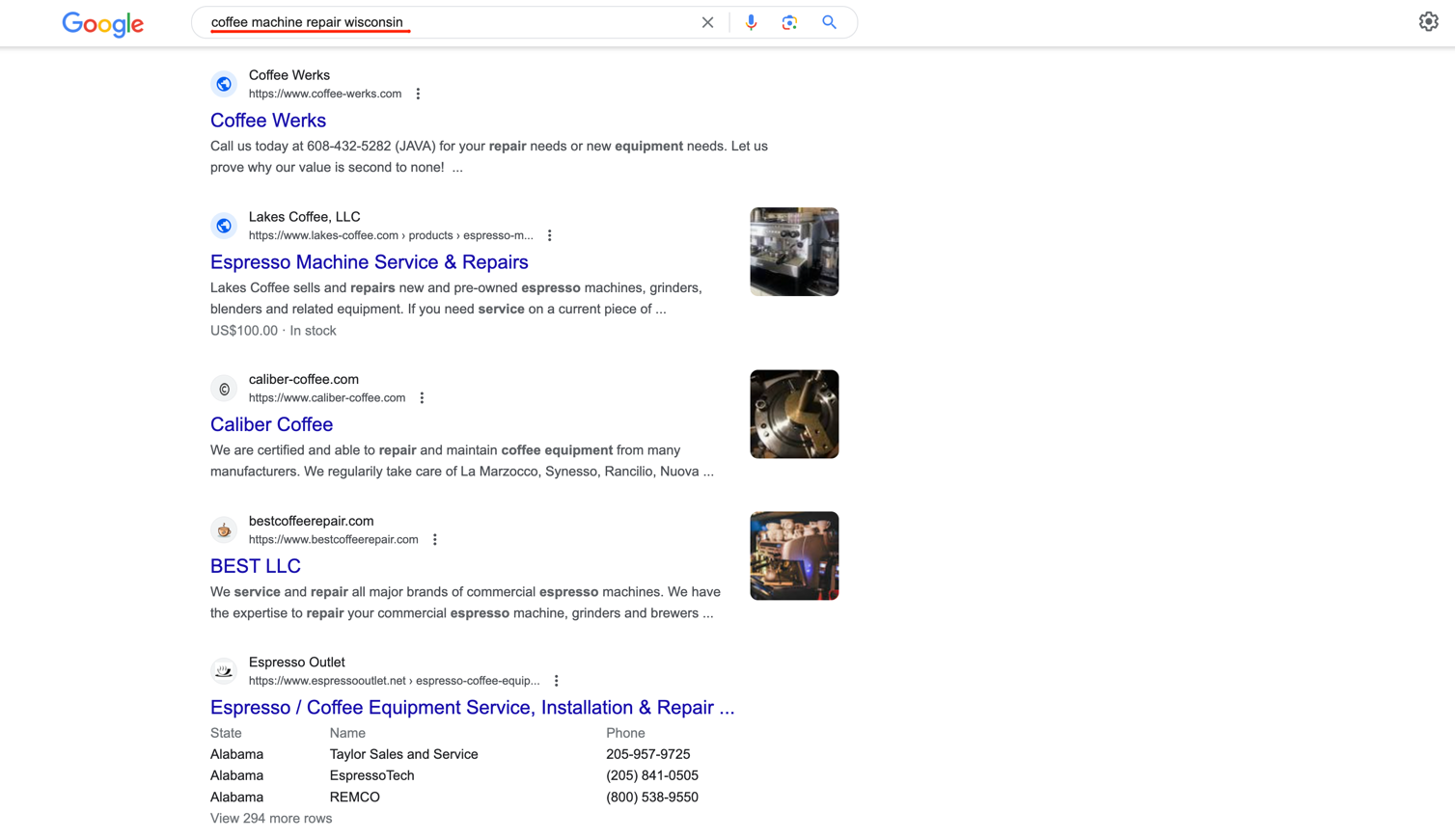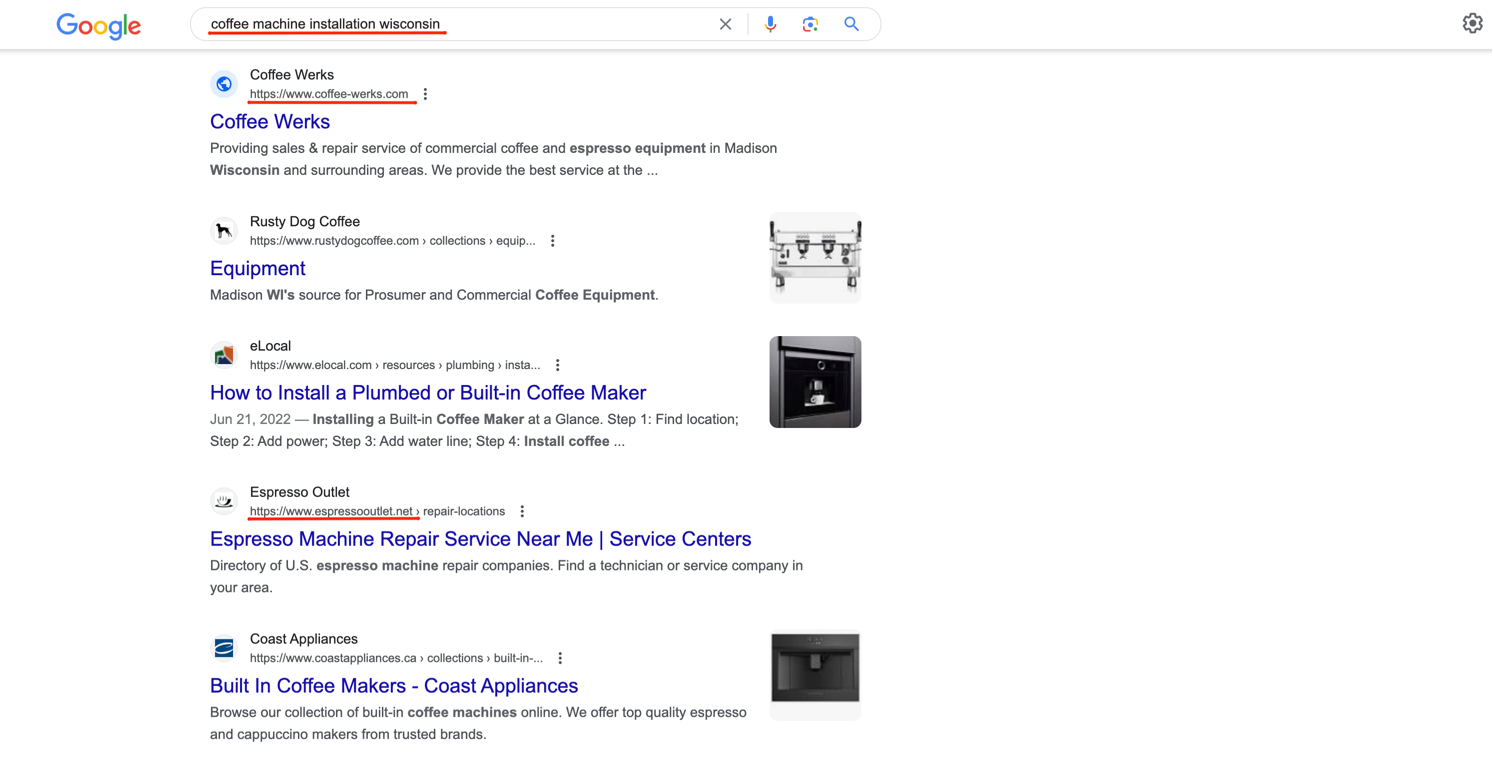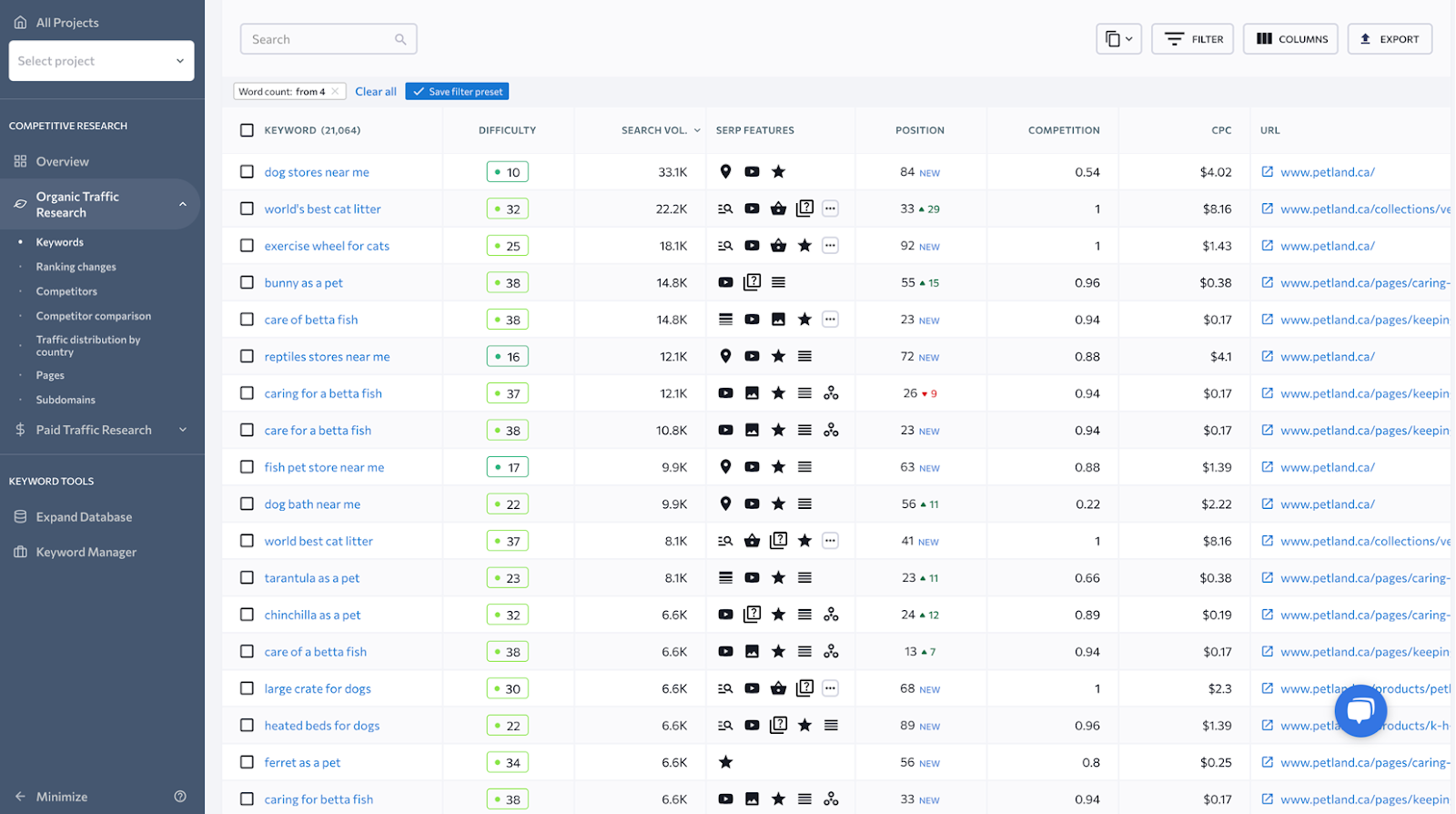Learning from other businesses competing for your prospects is one of the most lucrative ways to improve your product or service line, fill in your business gaps, enhance your online visibility, and revamp the way customers perceive your brand.
As every business nowadays strives to grow online, investigating online competitors' performance and SEO efforts is essential to paving the way for more customers and sales, and better brand recognition. Understanding their strategies can inform your approach to implementing full SEO services that encompass both technical optimization and content strategy, ensuring your website is well-positioned in search engine results. Finding competitors' keywords should be the first thing on your to-do list when attempting to outrank your niche rivals and lure potential clients.
Unearthing your competitors' SEO strategies and revealing their top-of-mind keywords is a stepwise process that requires precise attention to detail. You should pinpoint your niche competition thoroughly to ensure you're reaching the same target market.
Moreover, you need to look for the right keywords to implement in your strategy, compile a list of competitor pages relevant to your keyword search, utilize all-around tech tools to get comprehensive competitor data insights, and wisely incorporate the findings into your strategy.
Let this article be your guide to outsmarting the online competition and finding the most valuable and powerful competitor keywords in no time.
3 Primary Steps to Find Competitors’ Keywords
Spying on your competitors' main keyword tactics and discovering their keywords ideas is an exciting yet time and energy-consuming process. Hopefully, the three steps below will serve as a shortcut to unlocking your competitors' keyword strategies.
Step 1. Define Your Main Competitors and Their Top Pages
The easiest path to identifying your online competition is by performing a Google search. Simply enable private browsing, type in the primary keywords you associate your business with, and explore the first page of the organic Google search results.
For example, let's define the competitors for a coffee machine repair company serving throughout Wisconsin, USA.

Then, perform a few more searches for your keywords and check the results once again. The domains that rank high and repeat for multiple related searches are your top competitors to consider. See the example below.

Other practical ways to identify your niche competitors are to check sponsored search results, gather client feedback on alternative products or services they have previously considered, and monitor social media for hashtags and hot topics in your field.
Step 2. Employ Special Tools to Get Competitors’ Keywords
The competitor's website page source code is the most straightforward tool for getting some essential keyword ideas.
Thus, enter your competitor's website, right-click to choose "view page source", and then scan the retrieved HTML page source for the title tag, meta description, image ALT tags, etc. These are the top spots to put primary page keywords and notify search engines about the page content.

You can also explore competitors' website pages, blog posts, and separate product landing pages by reviewing the content and highlighting the keywords that repeat in the headers and within the content, as they are the ultimate keywords to jot down.
Additionally, pay attention to profound competitor analysis tools to gather comprehensive data on competitors' websites. Such tools usually boast extensive functionalities allowing you to better grasp your target market, glimpse niche trends, and thoroughly comprehend your brand's strengths and weaknesses compared to your niche opponents.
Although there is an array of software for competitive research, you can find a selection of the most reliable and feature-rich tools below in a separate section.
Step 3. Implement Keyword Findings into Your Strategy Wisely
Whether you use Google SERPs, HTML page source code, social media platforms, or specific competitor analysis software to unearth competitors' keyword strategies, make sure you understand which keywords you are looking for.
Different tools, especially ones processing giant keyword databases, can provide a hefty list of keywords to choose from. However, not all of them may be good to go. Therefore, you need to evaluate keywords' relevancy by focusing on suggestions that fully meet the search intent of your target audience and correspond to the product or service line you offer.
Pay attention to keyword search volume and difficulty when preparing keywords to stock up on, as you need lucrative keyword variations that combine an accurate search volume and a low level of competition to outrank your competitors.
Also, consider long-tail keywords containing at least three words to boost your chances of ranking for topic-related keywords. For example, instead of the keyword "coffee machine", which is too general, opt for "coffee machine for office", "espresso and cappuccino machine", "commercial coffee machine", "bean to cup coffee machine" keywords, etc.
Additionally, select the most advantageous ways to incorporate the keywords you've found into your SEO strategy. For instance, you can:
- Identify your keyword gaps and new remunerative keywords your competitors have yet to try and employ the findings to create epic content for your blogs, separate product pages, etc.
- Examine competitor page content targeting specific keywords to create a blueprint on how to produce more persuasive and SEO-friendly copy on the same topic.
- Prepare a content plan containing niche-specific topics that haven’t been covered yet based on the analyzed competitors' keywords.
Best Tools for Competitive Research
Take a look at the four best and most effective tools for finding competitors' keywords.
SE Ranking
The competitor analysis tool by SE Ranking offers a suite of essential metrics to investigate. You can grasp the quantity and quality of competitors’ backlinks, organic and paid traffic with distribution by country or continent, paid and organic keywords, website rankings, top pages in search results, and competitors' PPC campaign data.
The tool provides in-depth competitor keyword reports highlighting keyword search volume, keyword difficulty, position, online competition, SERP features, and CPC. It also offers a wide selection of filters to sort out all the keyword findings according to search intent, traffic share and cost, keyword word count, and more.

SpyFu
SpyFu is a sweeping tool primarily aimed at competitive intelligence. However, it can also help you conduct an extensive competitor analysis. The tool allows you to inspect your competitors' PPC and SEO efforts so that you can utilize the functionality to find competitors' paid and organic keywords.
With SpyFu you can perform competitive keyword research, investigate the search volume and competition of specific keywords, and estimate keyword CPC. Additionally, the tool provides extensive data to compare your competitors' strategies.
Google Keyword Planner
Google Keyword Planner is a keyword research tool primarily designed to meet the needs of specialists preparing paid advertising campaigns with Google Ads. However, the tool's functionality makes it great for everyone searching for valuable keyword ideas and it only requires having a valid Google Ads account.
With Google Keyword Planner, you can explore relevant keyword suggestions related to your business niche and investigate their search volume, competition, paid traffic bid estimates, year-over-year search volume comparison, etc. To obtain a precise data overview, you can filter the outcomes by a specific timeframe, language, and location.
AnswerThePublic
AnswerThePublic is a keyword research platform with remarkable data visualization. As the tool provides a wide range of keyword ideas on the specified topic, you can use it to discover competitors' keywords to empower your SEO strategy.
All the information is divided into multiple visualizations or data lists related to search queries covering questions, prepositions, comparisons, alphabetical, and related keywords. Even though AnswerThePublic is handy for finding keywords, you will need additional software to inspect competitors' domains and online performance.
Essential Tips on Finding Competitors’ Keywords
If you are wondering how to outrank your competitors by utilizing their SEO keywords, the following tips will help you to hit the mark.
Opt for Diversity
Refrain from sticking to a single tool when investigating competitors' keywords, as you need to see things from different perspectives for a well-rounded approach. Enhance your arsenal with basic and profound tools and software to get more authentic and comprehensive data insights.
Mind User Intent
Consider the user search intent behind keywords to ensure the keywords and content you produce to spotlight your products or services in search results address the needs of your target audience. By meeting user search intent with your content and keyword strategy, you boost the chances for better user engagement, relevant traffic flow, a lower bounce rate, higher conversions, a positive UX, and overall online success.
Dare to Outrank
Do not be afraid of the keywords your competitors already rank well for because they can contribute to your own SEO strategy by allowing you to comprehend the search intent of your prospects, uncover valuable keyword ideas that are proven to drive relevant traffic, understand what type of content to create to outperform your organic niche competition, etc.
Monitor Competitors Regularly
Continually monitoring your competitors' strategies and tracking their keywords over time is essential to stay abreast of market changes, industry trends, and search algorithm updates. Adjusting your strategy promptly and maintaining a blueprint to stay ahead of the competition is crucial.
Summary
Finding competitors' keywords is essential to SEO strategy, allowing you to gain more valuable online growth and development opportunities. By following the explicit and practical tips in this guide, you can seamlessly define your essential competitors and the keywords they target to enhance your own website ranking.
